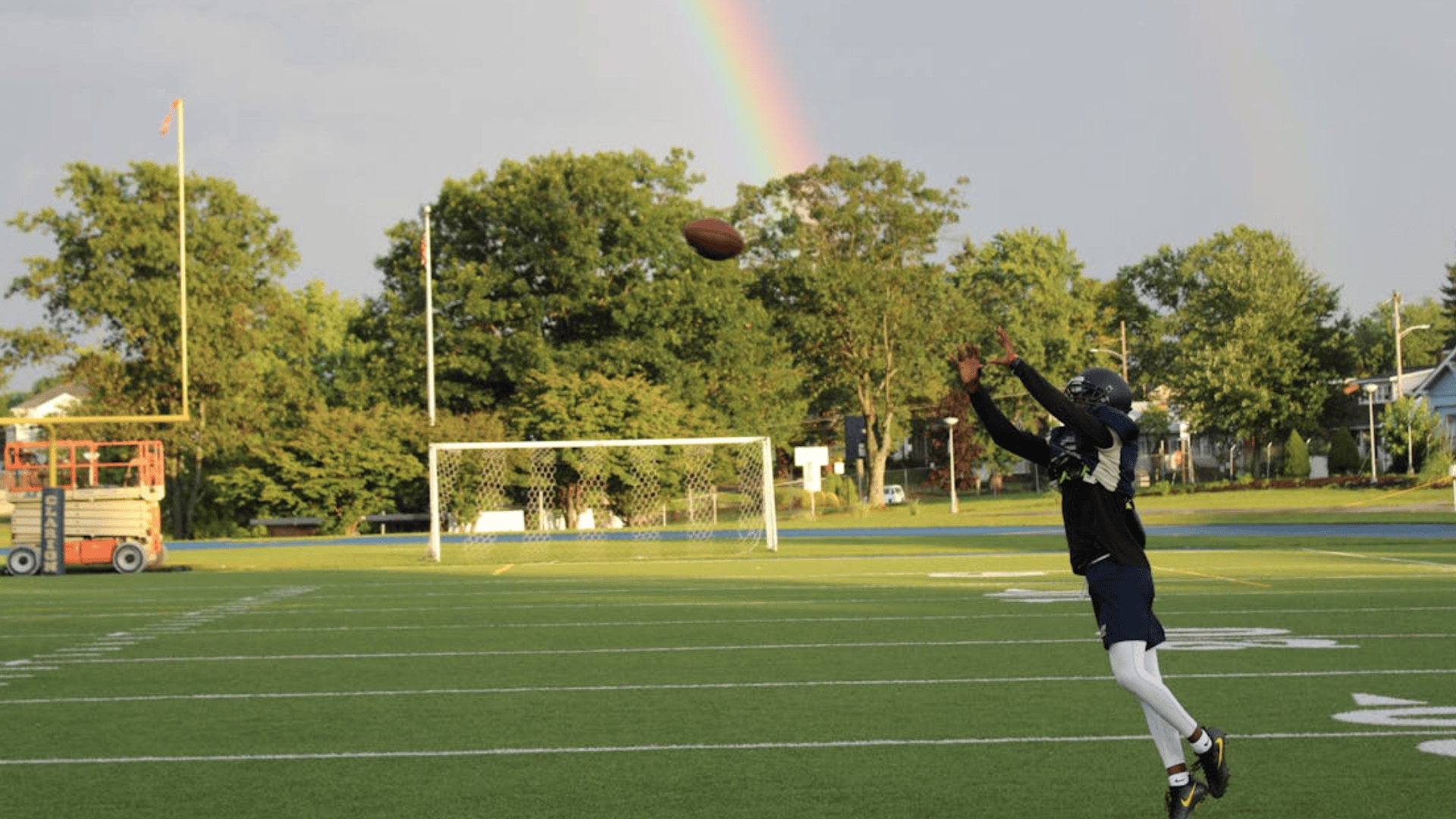Letting your child suit up for tackle football is a decision that comes with both excitement and hesitation. Parents see the thrill in their kids’ eyes when they pull on the jersey, but they also wonder what’s ahead once the whistle blows. Football is one of those sports that doesn’t do anything halfway. It tests strength, endurance, focus, and teamwork, and while that can be a little intimidating, it’s also what makes the experience unforgettable for many families. Knowing what to expect helps you support your child and feel at ease with the decision.
The First Gear Fitting Matters More Than You Think
That first trip to pick up equipment isn’t just about finding the right sizes, it sets the tone for the entire season. Kids get wide-eyed when they’re handed a helmet, and parents quickly realize that a lot more goes into those shoulder pads and cleats than they imagined. A well-fitted helmet isn’t negotiable.
It should sit snug, covering the forehead without sliding around, because that’s the barrier between your child and the hardest part of the sport. The same goes for football shoulder pads, which should distribute weight evenly and protect the collarbone without restricting movement. It’s worth taking the time to double-check everything before practice starts. Coaches usually do an extra fit check, but you’ll feel better knowing you helped make sure your child is protected. Proper gear doesn’t just prevent injuries, it also builds confidence. A kid who feels secure in their equipment steps onto the field ready to give their best effort.
The Physical Side Is Real, but Kids Adapt

There’s no way around it, tackle football demands a lot physically. At first, practices may leave your child sore in places they didn’t even know they had muscles. Conditioning drills, sprints, and tackling exercises build endurance, but they can also feel overwhelming in the first few weeks. The good news is that children bounce back quickly.
What seems tough in week one usually becomes second nature by week three. Football builds stamina and resilience faster than most sports, and parents often notice their kids getting stronger, sleeping better, and even eating with more enthusiasm. Yes, it can look intense from the sidelines, but remember that kids are learning at their own pace.
Coaches are trained to progress gradually, introducing skills in ways that minimize unnecessary risks. If you see your child dragging a little at the start, don’t panic. Their body adjusts, and they usually end up surprising themselves with how much they can handle.
Team Culture Shapes the Experience
Football isn’t just about one kid running the ball or making the tackle, it’s about learning how to operate as part of a unit. Parents often notice how quickly their child picks up on the unspoken rules of teamwork, like supporting a teammate after a mistake or celebrating someone else’s big play.
Coaches drive this culture home, emphasizing that everyone has a role to play, whether they’re a starter or not. Practices aren’t always glamorous, but kids learn that showing up and doing the work matters. Over time, even the shy kids start to speak up in huddles or take pride in their position.
Football teaches communication in a way that feels natural because the game demands it. Parents often see changes off the field too, like a boost in confidence at school or a willingness to take on responsibility at home. These lessons last far beyond the season, and for many families, that’s the real payoff.
Injuries Are Part of the Conversation, but Perspective Helps
Every parent has the same concern: injuries. It’s natural to worry, and it’s true that tackle football comes with risk. But context is important. Youth leagues today take safety more seriously than ever before. Coaches receive training in proper tackling techniques, teaching kids to keep their heads up and lead with their shoulders rather than helmet-to-helmet contact.
Practices are often limited in how much full contact happens, reducing wear and tear on growing bodies. Still, bumps and bruises are part of the package. A sprained ankle or jammed finger can happen just as easily in soccer or basketball.
The best thing you can do is keep communication open with your child. If they feel pain that doesn’t seem like typical soreness, encourage them to speak up. Most injuries are minor and heal quickly, and medical staff are often on-site during games. Parents who balance awareness with perspective usually find the worry manageable. It’s less about eliminating risk and more about preparing for it responsibly.
The Learning Curve Is Steeper Than Expected
Football has a reputation for being straightforward, but the truth is that the playbook can get surprisingly complex, even at the youth level.
Kids aren’t just running around hitting each other, they’re learning formations, signals, and strategies that take time to master. Parents sometimes underestimate how much brainpower goes into those huddles. That’s where patience comes in. Some kids catch on quickly, while others need more repetition. Coaches often use fun activities to teach concepts, like short games or drills disguised as challenges.
Parents can help by reinforcing the basics at home, even if it’s just tossing a ball around and talking through positions. Keeping it light prevents frustration and keeps kids motivated. And if your child comes home rattling off random stats or obscure plays, don’t be surprised. Many of them fall in love with football trivia, soaking up every detail of the game. That enthusiasm is a sign they’re not just playing football, they’re becoming a student of it.
Game Day Is Its Own World

When game day rolls around, everything shifts. The atmosphere is different from practice, and you’ll feel it the moment your child suits up. Parents crowd the sidelines, kids buzz with adrenaline, and the energy in the air is hard to miss.
For players, the first few games can feel overwhelming, but once they get through the jitters, it becomes one of the highlights of their week. As a parent, it’s easy to get swept up in the competition, but the best approach is to enjoy the ride and focus on effort rather than the scoreboard.
Coaches handle the technical side, and your role is to cheer, encourage, and maybe hand out orange slices afterward. Game day teaches kids how to perform under pressure, how to handle nerves, and how to bounce back from disappointment. It’s intense, yes, but it’s also unforgettable. Many families find themselves forming friendships with other parents, bonding over the highs and lows that only football Saturdays can deliver.
The Long-Term Payoff Goes Beyond the Field
By the time the season ends, most parents realize that football gave their child more than a few good stories. The sport develops toughness, yes, but also discipline, accountability, and a deeper sense of camaraderie. Kids learn to push through challenges, listen to authority, and show up for others, even when it’s inconvenient.
Parents often notice lasting changes, like improved time management, greater responsibility, or even a better attitude toward schoolwork. Football doesn’t guarantee these results, but it creates the environment for them to grow. It’s not about raising the next NFL player, it’s about giving your child a chance to be part of something bigger than themselves.
The values picked up on that field often follow them into every corner of life, shaping how they approach challenges and opportunities long after the final whistle.
Letting your child play tackle football is a leap into a sport that challenges them on every level, but it’s also one that gives back more than it takes.
You’ll see your child grow stronger, sharper, and more confident, sometimes in ways you didn’t expect. The game isn’t always easy, and there are risks, but with the right mindset and preparation, it can be an incredible chapter in your child’s life. The whistle blows, the game begins, and before you know it, you’re watching your child become part of something that leaves a mark far beyond the field.
















